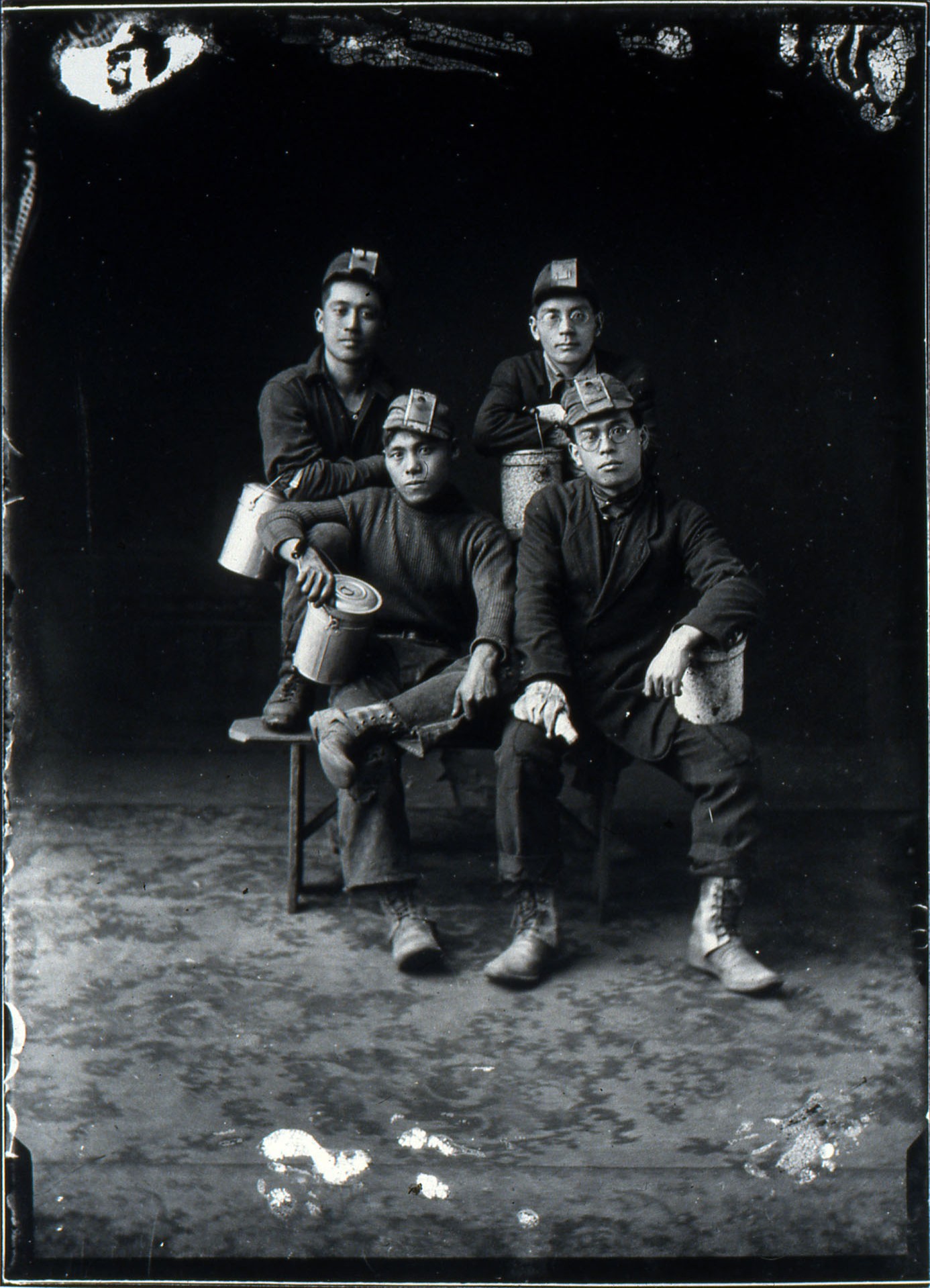Industrial Photography: From the Vernacular to the New Monumentalism
Tuesday, January 22, 2007, at 18:30
Concordia University, EV-1.615
 Hayashi Studios, Four Japanese Miners. Cumberland Museum, British Columbia
Hayashi Studios, Four Japanese Miners. Cumberland Museum, British Columbia
Rosemary Donegan
OCAD University
This lecture will trace the iconographic traditions of industrial photography in Canada from the vernacular studio portraiture of the Hayashi Studio, through Yousuf Karsh's melodramatic factory portraits, to the contemporary dystopian industrial landscapes of Edward Burtynsky.
Industrial photography emerged out of the mainly anonymous vernacular tradition of the documentation of industry and industrial life routinely undertaken by business and government at the turn of the 19th century. Throughout the 20th century, industrial imagery evolved as a distinct modernist subject area and included portraiture, factory architecture social documentary and abstract machinery imagery. These images were imbued with complex issues of race, class, technology, labour unions and the nature of work. The presentation will consider contemporary work, such as Burtynsky's, in relation to postmodernist concepts of the sublime, the photographer as creator, and industrial photography's social, cultural and environmental meanings.
Rosemary Donegan is an independent curator, writer and educator, whose curatorial work has focused on issues of industrial and urban history. Donegan researched and curated the exhibition and subsequent book, Spadina Avenue and published an extended essay entitled What ever happened to Queen St. West in Fuse magazine in 1986. Donegan's recent exhibitions include Ford City Windsor (Art Gallery of Windsor) and Work, Weather and the Grid: Agriculture in Saskatchewan (Dunlop Art Gallery). She is presently an Associate Professor and Assistant Dean in the Liberal Studies Faculty of the Ontario College of Art & Design.

